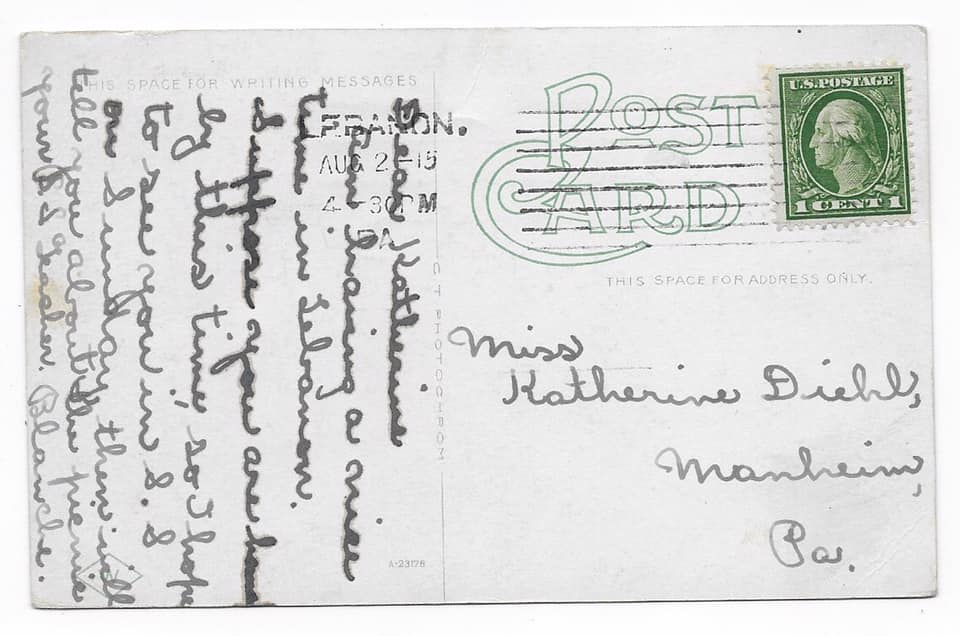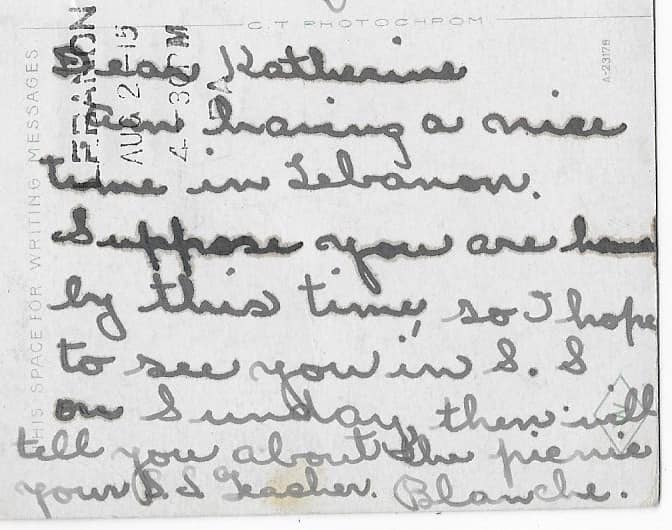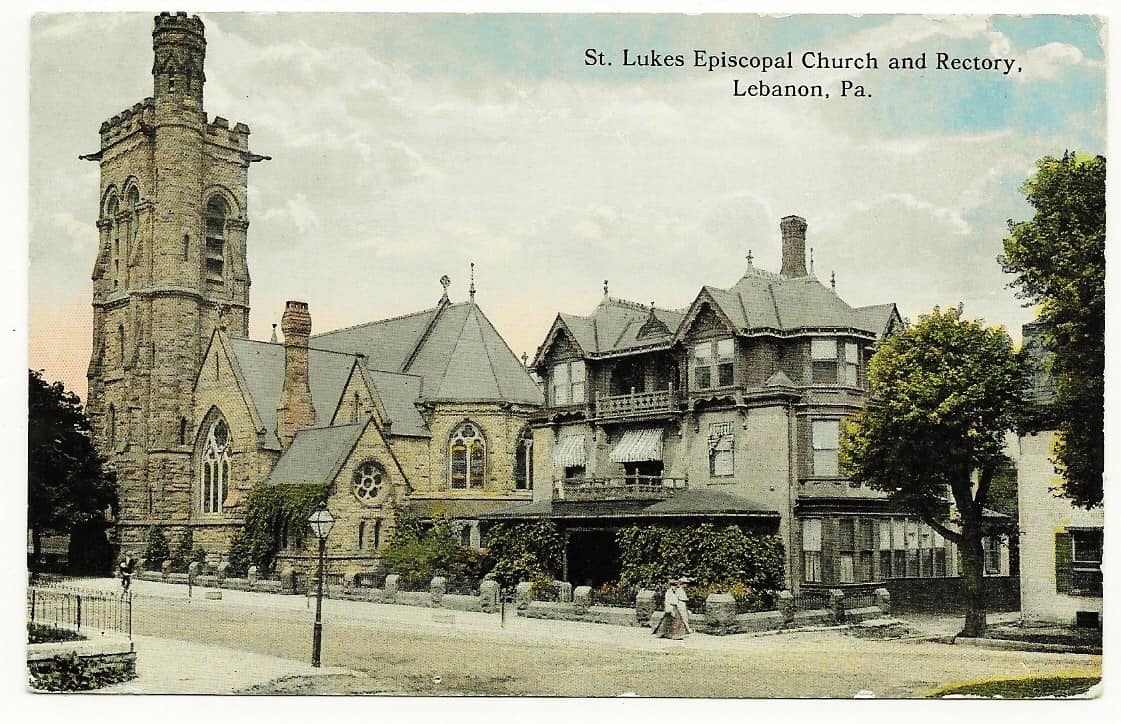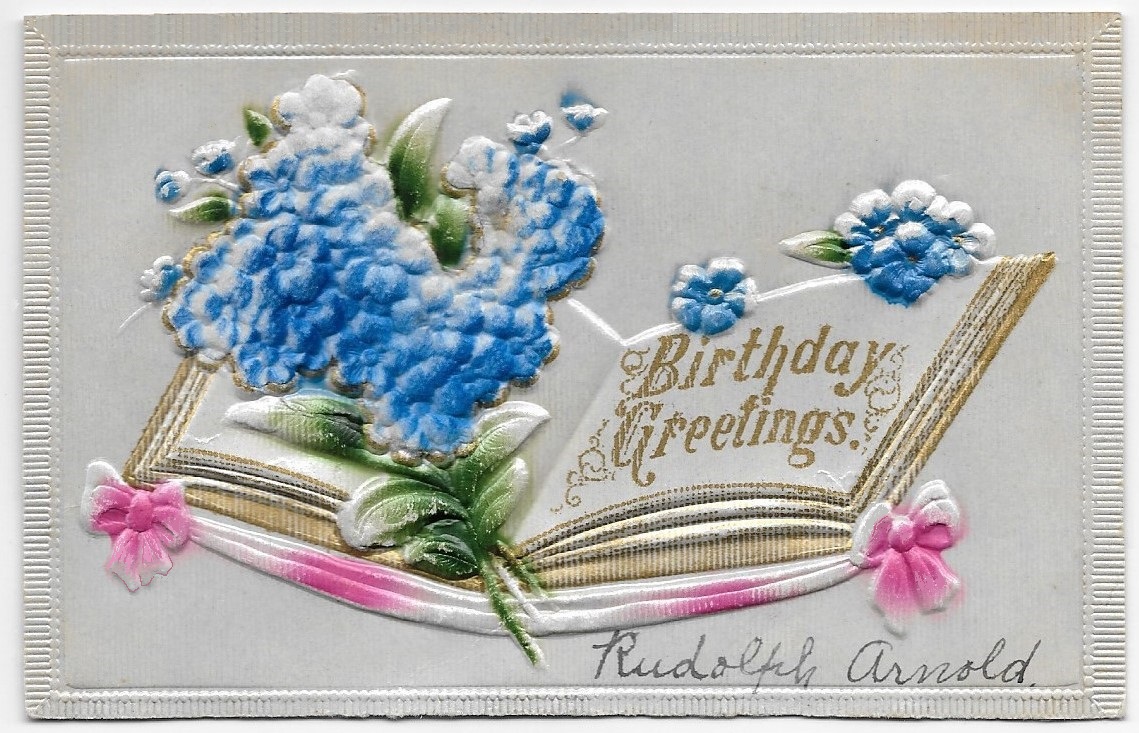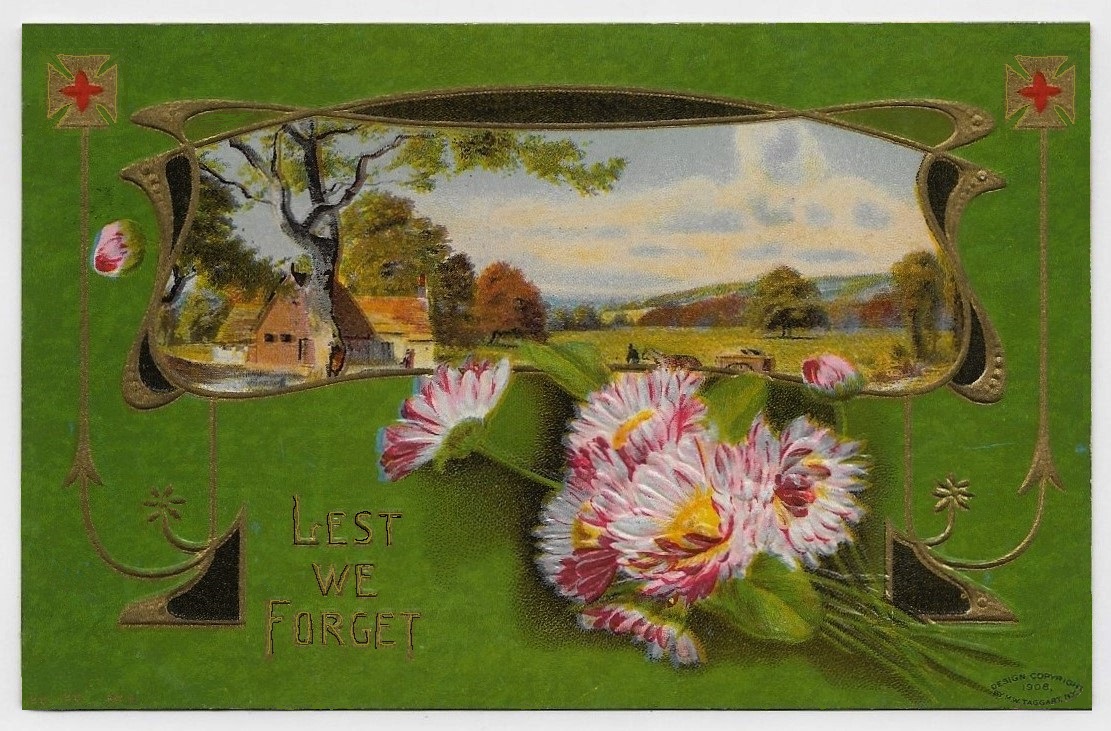Robert Habersham Coleman, great-grandson of the founder of the Cornwall Iron dynasty, was once the richest man in Pennsylvania and one of the wealthiest in the US.
(In 1889, Coleman’s fortune -from his inheritance which he shrewdly invested in the foundation of new furnaces and his diversification into railroads and livestock- was greater than that of Drexel, Morgan, Fields, or Vanderbilt.)
We met Coleman in earlier postcard stories related to his creation of the resort community at Mount Gretna and of the small-grade railroad to the top of “Governor Dick”.
In 1879, Coleman married Jennie Lillie Clark of New Haven, CT.
The honeymoon was spent touring in a private railroad car, followed by a Grand Tour of Europe.
Alas, Jennie was stricken with malaria as the pair traveled across the Continent purchasing artwork and furnishings for the mansion being built for them in Lebanon County.
Hoping to recover in the congenial climate of Italy, the Coleman’s settled there, but Jennie did not improve.
The Colemans raced to Paris as Jennie’s condition worsened.
Jennie died in Paris.
Heart-broken, Robert Coleman returned home and ordered the deconstruction of the new mansion.
Some of the materials were re-purposed in the completion of the Episcopal Church that Coleman had endowed in the city of Lebanon.
The cornerstone of St. Luke’s Church was laid by Bishop Howe on St. Luke’s Day in October of 1879 – the Church was dedicated to the memory of Jennie Coleman.
A postcard photograph of St. Luke’s Church was mailed to Katherine Diehl in August of 1915.
Sent from Lebanon by her Sunday School teacher, Blanche, the postcard reached Katherine in Manheim.
Blanche reports that she is “having a nice time in Lebanon” and expects to see Katherine in Sunday School to discuss a planned picnic.
On-line, one can find the fascinating saga of Robert H. Coleman.
Although his business instincts were sound, he had borrowed millions of dollars to fulfill his dream of the Jacksonville, Tampa, and Key West Railway.
The Panic of 1893 crushed his ability to sustain his vast holdings, and they were lost in an agonizing sequence of forced sales.
(The Florida railroad, as Coleman foresaw, made a fortune for the buyers who acquired it from bankruptcy.)
Coleman’s celebrated generosity and public-spirit is remembered and memorialized in many places today – from which we may draw a lesson for this Sunday: our good deeds are the only legacies that matter.
